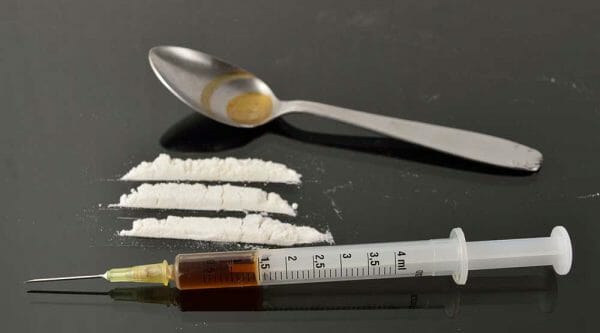Opinion 1st ran Wednesday, December 21, 2022

As a senator in 1986, President Joe Biden wrote the bill that established an irrational sentencing disparity between the smoked and snorted forms of cocaine, which he later called “a big mistake” that “trapped an entire generation.” This week [in December of 2022], Congress squandered yet another opportunity to correct Biden’s big mistake, which mandated especially severe punishment for crack offenders based on an arbitrary distinction with no scientific basis.
The omnibus spending bill that was released early Tuesday morning did not include legislation addressing crack cocaine penalties. Republicans who had been open to that proposal reportedly balked after Attorney General Merrick Garland issued a memo last Friday that instructed federal prosecutors to “promote the equivalent treatment of crack and powder cocaine offenses” in their charging decisions and sentencing recommendations.
As Senate Minority Leader Mitch McConnell (R-Ky.) saw it, Garland’s memo usurped congressional authority by shielding crack defendants from mandatory minimum sentences.
So, instead of asserting that authority by rectifying a blatantly unjust penalty scheme, Congress has once again kicked the can down the road.
The Anti-Drug Abuse Act of 1986, which Biden wrote, established a sentencing policy that treated smokable cocaine as if it were 100 times worse than the snorted kind. Under that law, possessing 5 grams of crack with intent to distribute it triggered the same five-year mandatory minimum sentence as 500 grams of cocaine powder; likewise, the 10-year mandatory minimum required 5 kilograms of cocaine powder but only 50 grams of crack.
Because federal crack offenders were overwhelmingly Black, while cocaine powder offenders were more likely to be white or Hispanic, the rule Biden championed meant that darker-skinned defendants received substantially heavier penalties than lighter-skinned defendants for essentially the same offenses. As that trend became clear, the African American legislators who had supported the law turned against it.
By the early 1990s, pressure was building for reform of crack penalties. But Biden was slow to acknowledge his error.
“We may not have gotten it right,” Biden conceded 16 years after he helped establish the 100-to-1 rule. Five years later, during an unsuccessful bid for his party’s 2008 presidential nomination, he introduced a bill that would have equalized crack and cocaine powder sentences.
Congress still has not done that. But the Fair Sentencing Act of 2010 reduced the weight ratio, making it 18 to 1 rather than 100 to 1, and the FIRST STEP Act, which former President Donald Trump signed into law at the end of 2018, made that change retroactive, which resulted in the early release of about 2,400 federal prisoners.
The Fair Sentencing Act passed the House by a voice vote and passed the Senate by unanimous consent. By that point, pretty much everyone agreed that the 100-to-1 ratio was crazy, but eliminating the disparity altogether was still not politically feasible.
Under current federal law, someone caught with 28 grams of crack (about an ounce) automatically goes to prison for at least five years unless he qualifies for a statutory “safety valve” or prosecutors certify that he has provided “substantial assistance” to the government. Depending on his criminal history, someone caught with the same amount of cocaine powder could receive a sentence ranging from less than a year to three years under federal guidelines.
Even today, Republicans who agree that further reform is necessary propose reducing the gap instead of eliminating it. Yet as Garland noted in his memo, “the crack/powder disparity is simply not supported by science, as there are no significant pharmacological differences between the drugs: they are two forms of the same drug, with powder readily convertible into crack cocaine.”
Biden’s 2019 explanation of his thinking in 1986 gives you a sense of how little attention legislators pay to such facts when they are determined to show how tough they are on drugs. “We thought we were told by the experts that crack … was somehow fundamentally different,” he said. “It’s not different.”
Thirty-six years later, Congress is still pretending otherwise.
About Jacob Sullum
Jacob Sullum is a senior editor at Reason magazine. Follow him on Twitter: @JacobSullum. During two decades in journalism, he has relentlessly skewered authoritarians of the left and the right, making the case for shrinking the realm of politics and expanding the realm of individual choice. Jacobs’ work appears here at AmmoLand News through a license with Creators Syndicate.







At the time, we were told that crack cocaine was more addictive. But B.S. on just “correcting” the legal distinction. Republicans in Congress need to learn the art of quid pro quo, how to get something for something. Present something like this coke inequity as desirable to Democrats and get something back for changing it, whether it be reduced spending or reversing some of the recent gun control bill. Right now the DNC could offer gold to the RNC at a negotiable $400 per ounce and the RNC would negotiate it up to $10,000.
To be fair to an unfair person (Biden), Biden was just pandering to blacks because of Len Bias’s death. They demanded it because “smoked cocaine was killing black people!”, so he complied. I think it’s obvious he (and others) will do whatever it takes to get ahead career-wise and financially. He is malleable. Ref. China and Ukraine and Russia and…
More unconstitutional tyranny. The federal government has absolutely zero constitutional authority to dictate what adults can put into their own bodies or what substances adults can possess. To believe otherwise is to say that you have no bodily autonomy and are essentially a slave to the state. A slave who must get approval from their master on what they’re allowed to consume. A government with the “authority” to dictate what you are “allowed” to consume also has the “authority” to dictate what you MUST consume.
But look how much money the Prison Industrial Complex makes ?
In Three Felonies a Day, Harvey A. Silverglate reveals how federal criminal laws have become dangerously disconnected from the English common law tradition and how prosecutors can pin arguable federal crimes on any one of us, for even the most seemingly innocuous behavior.
I agree that cocaine is cocaine, and I know of several people who should not have been sent up forever for just the crack they were smoking. But please, PLEASE, let’s shut down the drug pipeline that is our southern open border.
On a related note, the Secret Service seems to have “given up” on their investigation of the cocaine found in the White House, after about 10 days. Give me a break! I can see fingerprints on the bag in the grainy pics released to the news media. With cocaine powder on a plastic bag, it’s easy to pull prints. If I were on the SS detail that found it, I could have snapped pics with my phone and got an I.D. In under a minute. Everybody that works in the White House or is a regular visitor has prints on… Read more »
Instead of lowering the punishment for crack cocaine, we should raise the penalty for powdered cocaine. Then the penalties would be equal